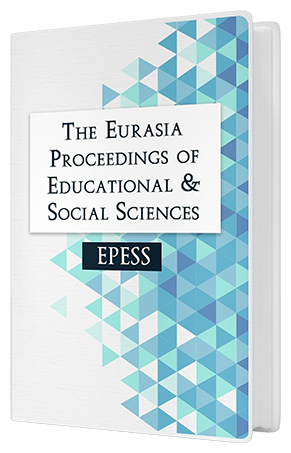THE EFFECTIVENESS OF CLINICAL SUPERVISION ON TECHNOLOGY TEACHER‘S PROFESSIONAL DEVELOPMENT IN JERUSALEM A CASE STUDY
Keywords:
Clinical supervision, teacher, professional development, technologyAbstract
This study aims to investigate the effectiveness of Clinical Supervision on Technology teacher’s professional development in Jerusalem by attempting to answer the following key research question: What is the effectiveness of clinical supervision on technology teacher’s professional development in Jerusalem? The study utilized a Qualitative Research Methodology with an analytical descriptive design. The case study consists of a participant teacher who was chosen via a diagnostic survey distributed to three teachers who taught technology from 5th to 12th grade due to the difficulties that the Technology teachers faced, since the subject is variety in content and need to apply different ways to educate. The researchers implemented this type of supervision that consists of a cycle of three stages: a planning session, classroom observation and a feedback session (Gall & Acheson, 2011). The aim of the study was to change the teacher’s viewpoint and perspective towards supervision with the aid of the following instruments: an interview with her, at the beginning and the end of the study; to determine her needs, and to meet these needs by using interviews and diagnostic and observation tools as well as following upon her portfolio and Teacher’s Journal. The researchers focused on communication methods that supports teacher’s reflections within a relationship of fellowship, trust and partnership. The study used four consecutive applications of the clinical supervisory cycle following a constructivist approach to meet the teacher’s needs. Following the feedback session, an implementation period for the developmental practices that have been reached during the meeting was provided along with the indicators developed qualitatively to identify the level of progress and change. The results of the study revealed that the technical clinical supervision model contributed effectively to the professional development of the participant teacher. This development included communication skills, and teaching practices as well as reflection and self-assessment skills. In light of the study findings, relevant recommendations foe policy making bodies were offered to improve the educational supervision in the Palestinian education system especially in Technology subject.Downloads
Published
Issue
Section
License
Copyright (c) 2017 The Eurasia Proceedings of Educational and Social Sciences

This work is licensed under a Creative Commons Attribution-NonCommercial-ShareAlike 4.0 International License.
The articles may be used for research, teaching, and private study purposes. Any substantial or systematic reproduction, redistribution, reselling, loan, sub-licensing, systematic supply, or distribution in any form to anyone is expressly forbidden. Authors alone are responsible for the contents of their articles. The journal owns the copyright of the articles. The publisher shall not be liable for any loss, actions, claims, proceedings, demand, or costs or damages whatsoever or howsoever caused arising directly or indirectly in connection with or arising out of the use of the research material. All authors are requested to disclose any actual or potential conflict of interest including any financial, personal or other relationships with other people or organizations regarding the submitted work.




